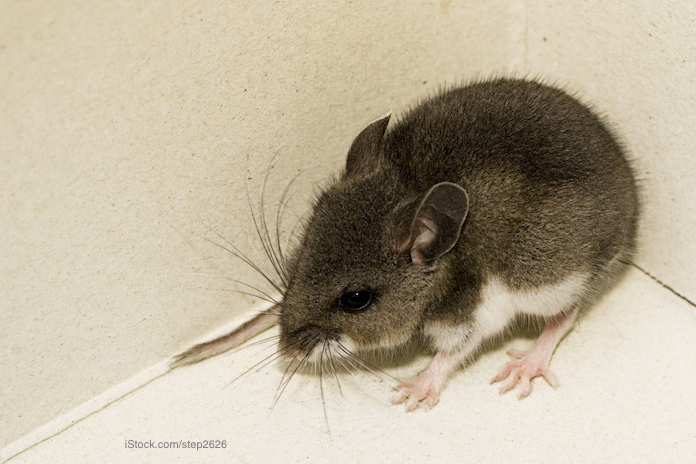The California Department of Public Health is warning residents about the dangers of hantavirus pulmonary syndrome. A man who lives in Northern California was recently diagnosed with the illness.

This is a potentially fatal illness that is spread by rodents, particularly deer mice. The virus is in their urine, droppings, and saliva. If a person breathes in small particles of mouse urine or droppings that have been stirred up into the air, they can contract the illness. The virus lodges in the lungs and destroy capillaries, which causes the lungs to fill with fluid.
Symptoms of hantavirus begin with headache, fever, and muscle aches. The patient may develop vomiting, diarrhea, and abdominal pains. After a few days, a cough may develop, along with low blood pressure and heart problems. The disease progresses rapidly to severe difficulty breathing and can cause death if not treated promptly with antibiotics.
The illness was identified in 1993. Since then, there have been 73 hantavirus infections in California and 659 in the United States. About 30 percent of cases in California have been fatal.
The patient allegedly stayed at cabins in a California park. He started getting sick in early July, with constant headaches. Then a fever developed. He was admitted to the ICU and was in critical condition as of July 22, 2017, according to news reports.
The disease can also be carried by white-footed mice, rice rats, and cotton rats. Common house mice do not spread the illness. Cabins and trailers that have been unoccupied for some time can be hazardous. Mice get into those buildings and leave droppings everywhere. The virus becomes aerosolized when the droppings are disturbed.
This illness is not spread person-to-person in North America. Some outbreaks in other regions, especially South America, have been spread this way.
One of the problems with hantavirus is that it is often diagnosed as another illness, more specifically pneumonia or the flu. If you have been around rodents or rodent droppings and have experienced symptoms similar to pneumonia, see a doctor immediately.
To prevent this illness, avoid contact with wild rodents, their droppings, and nesting material. When you open a cabin or house that has been closed for a while, air it out for at least 30 minutes before you go in. Do not dry sweep or vacuum areas contaminated by rodents.
If you see rodent droppings, wet them with a 10% bleach solution or commercial disinfectant, carefully following the package directions. Then mop up the droppings. Throw away all of the cleaning materials you used, and wash your hands and clothes. Try to seal your home, looking for tiny holes, so rodents can’t get inside. And store all food in rodent-proof containers. If any food package has chew marks or holes, discard it and wash your hands thoroughly with soap and water.
Other animals that can carry the virus include squirrels and chipmunks. Do not feed those animals and never touch sick or dead rodents. When hiking, wear long pants tucked into socks or boots, since fleas on rodents can carry the virus.




